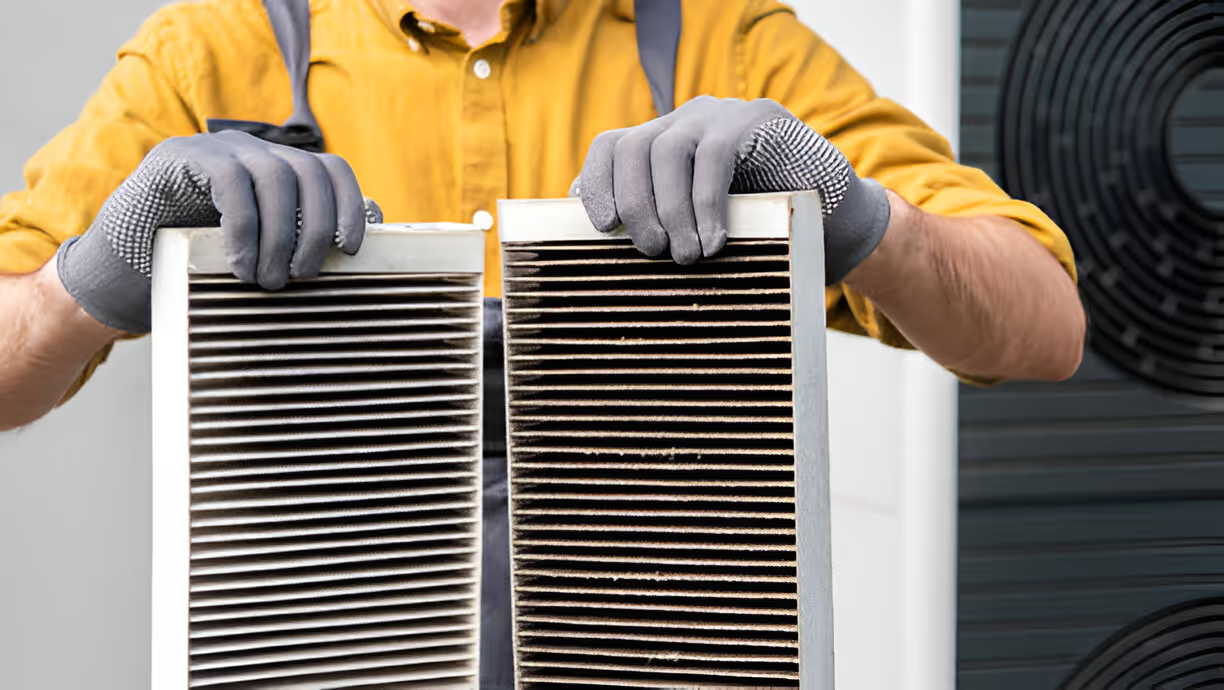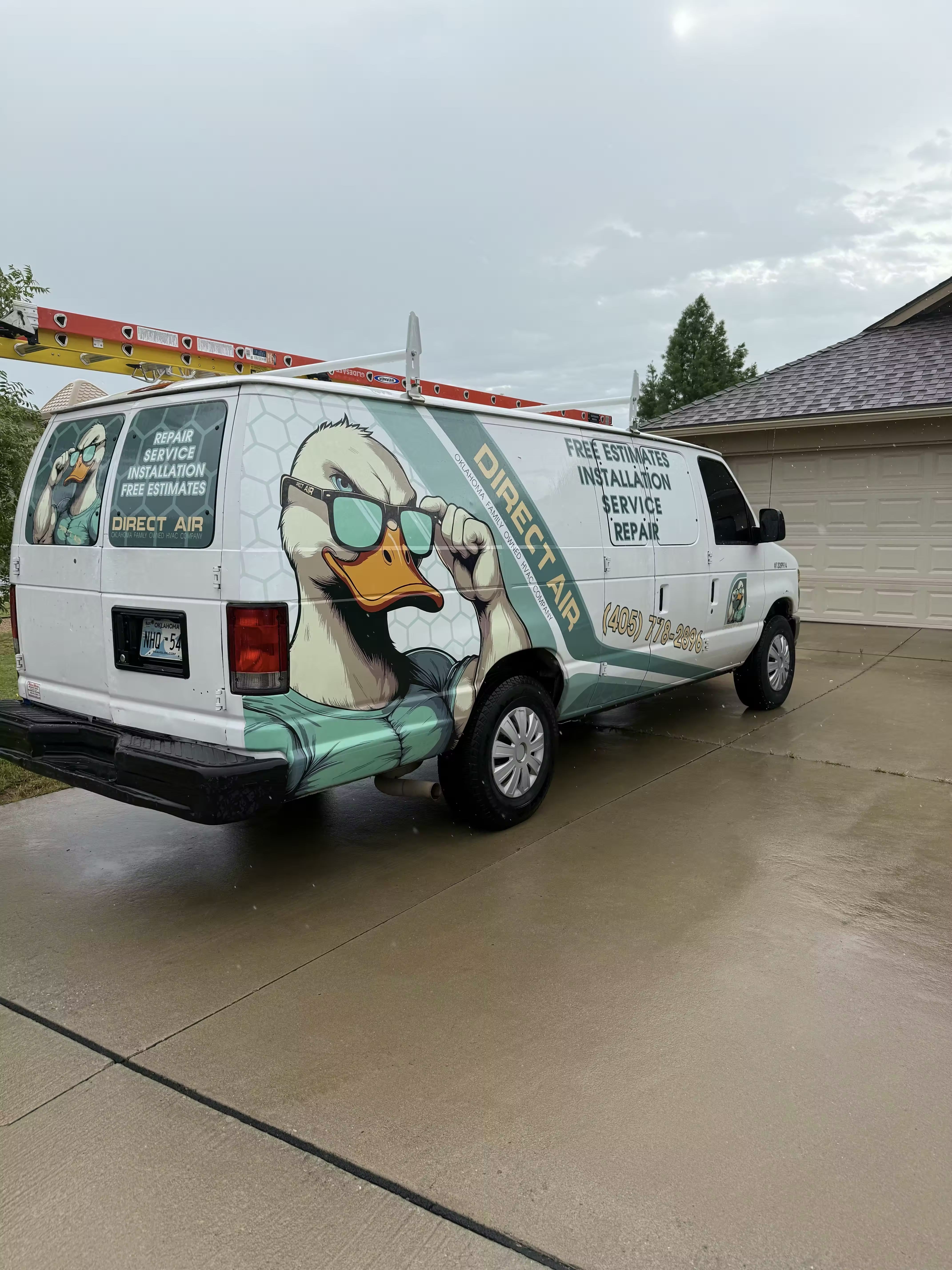Your HVAC filter is crucial for healthy indoor air quality and system longevity in Oklahoma City, OK. This vital component traps contaminants like pollen and dust, preventing recirculation and protecting your equipment from strain. Understanding MERV ratings and filter types helps you choose correctly. Regular HVAC filter replacement, often more frequent with pets or allergies, is essential. Our experts offer consultation and professional services, ensuring proper installation to maximize your system's efficiency and indoor air quality.
HVAC Filters in Oklahoma City, OK
The air circulating through your Oklahoma City home is only as clean as the filter it passes through. Often overlooked, your HVAC filter is a critical component that acts as the first line of defense for both your family’s health and the longevity of your heating and cooling system. A clean, high-quality filter does more than just run your system; it actively improves your indoor environment by capturing airborne particles, enhancing efficiency, and preventing costly breakdowns. Choosing the right filter and replacing it on schedule is one of the most impactful maintenance tasks you can perform for your home’s comfort and well-being.
The Critical Role of Your Air Filter
Think of your HVAC filter as the lungs of your home’s comfort system. As air is pulled into the unit to be heated or cooled, it first passes through this filter. Its primary job is to trap a wide array of contaminants before they can either be recirculated into the air you breathe or settle on the sensitive internal components of your HVAC equipment.
For residents in Oklahoma City, this means capturing common local irritants like seasonal tree and grass pollen, red dirt dust, pet dander, mold spores, and other microscopic particles. A high-performing filter directly contributes to better indoor air quality, which can be a significant relief for individuals with allergies, asthma, or other respiratory sensitivities.
Furthermore, a clean filter ensures proper airflow. When a filter becomes clogged with dirt and debris, it forces your furnace or air conditioner to work much harder to push air through. This strain leads to reduced efficiency, higher energy bills, and unnecessary wear and tear that can shorten the lifespan of your system and lead to premature equipment failure.
A Guide to Filter Types and MERV Ratings
Navigating the world of HVAC filters can be confusing, but understanding two key aspects—the MERV rating and the filter type—will empower you to make the best choice for your home.
Understanding MERV Ratings
MERV stands for Minimum Efficiency Reporting Value. It’s a standard rating scale from 1 to 20 that measures a filter's effectiveness at trapping airborne particles. A higher MERV rating indicates finer filtration, meaning the filter can capture smaller particles.
- MERV 1-4: These basic fiberglass filters capture large particles like dust and lint. They offer minimal protection for air quality but primarily protect the HVAC system itself.
- MERV 5-8: This is a good starting point for most homes. Pleated filters in this range capture mold spores, dust mite debris, and pet dander, offering a significant upgrade over basic filters.
- MERV 9-12: Considered superior residential filtration, these filters are excellent for households with allergy sufferers or pets. They trap finer particles like auto emissions and lead dust.
- MERV 13-16: These high-efficiency filters provide excellent filtration for those with severe allergies or respiratory conditions. However, their dense material can restrict airflow, so it's crucial to ensure your HVAC system is compatible before using them.
- MERV 17-20: These are HEPA (High-Efficiency Particulate Air) filters, used in hospitals and cleanrooms. They are generally not suitable for standard residential systems without professional modification.
Common Filter Types
- Fiberglass Filters: Inexpensive and disposable, these provide basic protection for your HVAC unit but do little to improve indoor air quality.
- Pleated Filters: The most common residential choice, these filters use a larger surface area of pleated material to trap more particles without severely restricting airflow. They offer a great balance of filtration and efficiency.
- Electrostatic Filters: These filters use self-charging fibers to attract and trap particles. Many are washable and reusable, but they require regular cleaning to remain effective.
- Activated Carbon Filters: Designed to remove odors and VOCs (volatile organic compounds), these filters contain carbon that absorbs smells from pets, cooking, and smoke. They are often combined with a pleated filter for particle capture.
When to Replace Your HVAC Filter in OKC
A filter's lifespan depends on your specific home environment. While a general guideline is every 90 days, you should consider changing it more frequently based on these factors:
- Pets: Homes with cats or dogs should change filters every 30-60 days.
- Allergies or Asthma: If anyone in your home suffers from respiratory issues, a monthly change with a higher-MERV filter is recommended, especially during Oklahoma's peak pollen seasons.
- Smokers: Households with smokers should change filters every 30 days.
- Local Environment: Living near a new construction site or a busy road can increase dust levels, requiring more frequent changes.
Key signs that your filter needs immediate replacement include a visible layer of dirt, reduced airflow from your vents, an increase in dust around your home, or a sudden spike in your energy bills.
Expert Filter Consultation and Replacement Service
While changing a filter can seem like a simple task, professional guidance ensures you achieve the best results. Our experienced technicians do more than just swap out an old filter. We provide expert consultation to help you select the ideal filter type and MERV rating for your specific needs, your family's health concerns, and your system's capabilities. We ensure the new filter is sized and installed correctly to prevent "air bypass," where unfiltered air leaks around the edges, defeating its purpose.
This professional approach guarantees that you are not only protecting your investment but also maximizing your indoor air quality and system efficiency. As part of a comprehensive service, we can also identify if a clogged filter has caused any underlying strain or issues with your HVAC equipment, helping you catch problems before they become expensive repairs. For a truly worry-free solution, our maintenance plans include scheduled filter replacements, ensuring your system always operates with a clean, effective filter.

Financing
.png)









